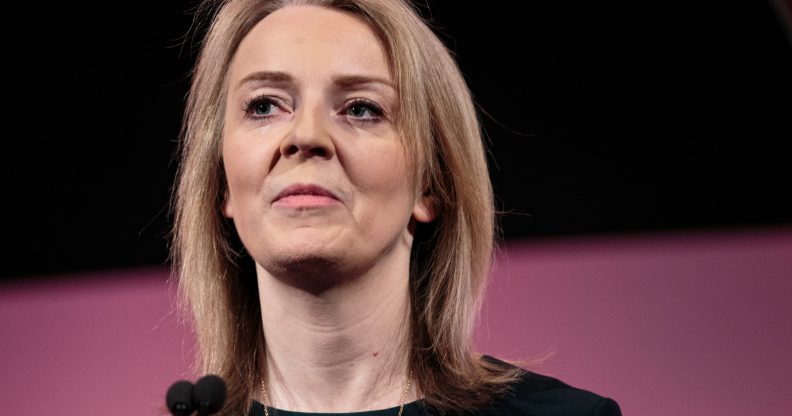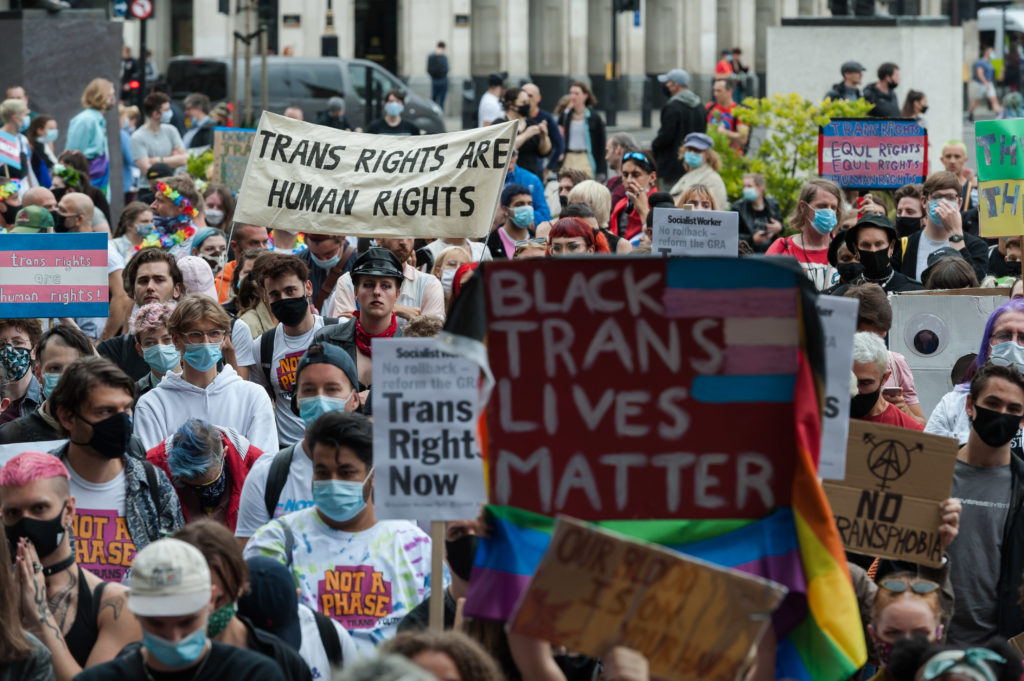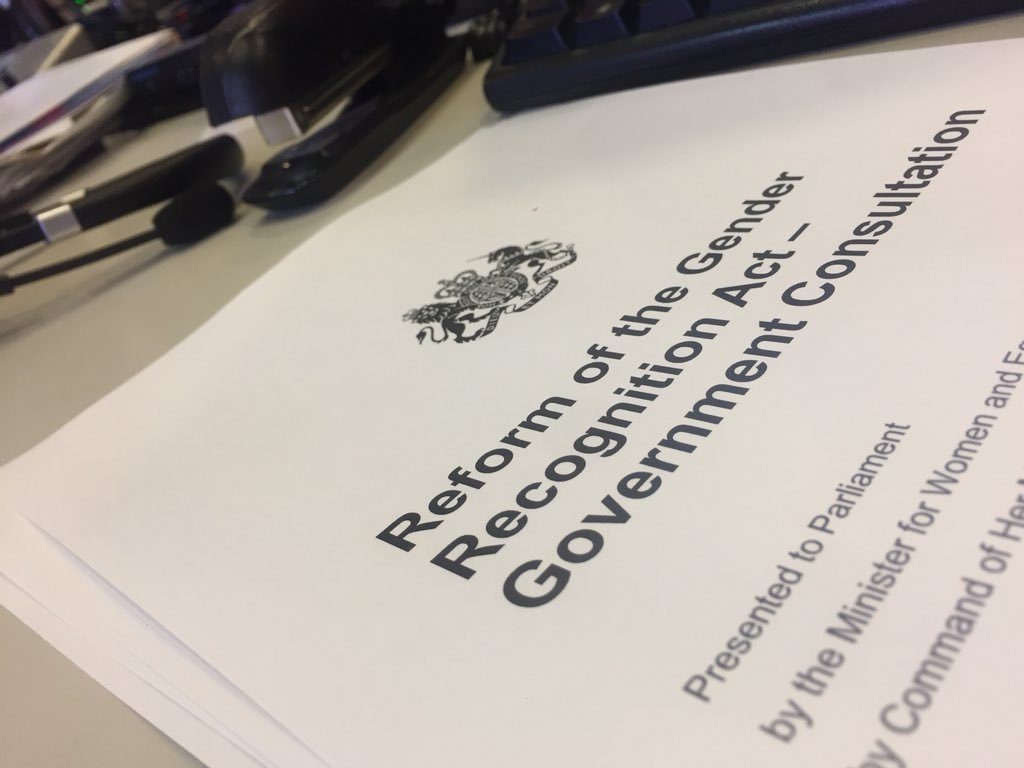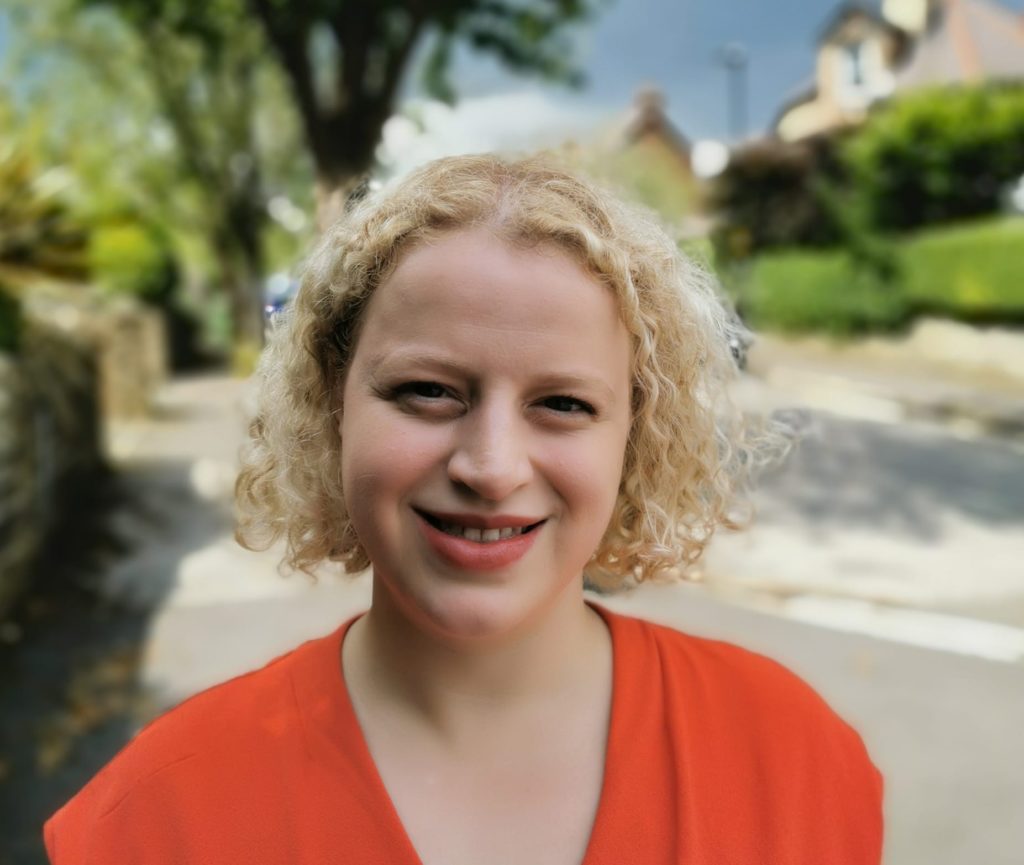While the government may have consulted, it’s clear Liz Truss has not listened. Trans and non-binary people deserve better

Liz Truss speaking at the annual British Chambers of Commerce conference on March 28, 2019 in London, England. (Jack Taylor/Getty Images)
Olivia Blake, the Labour MP for Sheffield Hallam, explains for PinkNews why she believes the Conservative government’s long-awaited response to the Gender Recognition Act does little to tackle the injustices facing trans people today.
On Tuesday (22 September), the government announced its much-awaited response to the Gender Recognition Act (GRA) consultation.
While the act was a step forward when it passed into law in 2004, it’s in desperate need of an update now.
The office for women and equalities opened the consultation in 2018 and has taken two long years to publish its findings and set the direction of travel for much-needed reform of the legislation.
The public debate in this time has frequently made trans people the subject of vitriolic attack and ridicule in the media. Some journalists and politicians have disgracefully attempted to use the fundamental human rights of trans people to stoke a culture war.
The protracted and poisonous debate has taken its toll on the wellbeing of a group of people who are already more likely to suffer acute mental health problems due to transphobic discrimination, bullying and even physical assault – according to Stonewall’s 2017 ‘School Report’, 84 per cent of trans young people have self-harmed, 89 per cent have considered suicide, and 45 per cent have attempted to end their own life.
Those figures shame our society.

The government has ‘utterly squandered’ the opportunity to make real improvement to the lives of trans people, explains Olivia Blake. (Wiktor Szymanowicz/Barcroft Media via Getty Images)
After a toxic two year “debate” which at times questioned the legitimacy of their right even to exist, many trans people will be sorely disappointed by the government’s response to the consultation.
It has utterly squandered the opportunity to make a real, material improvement to the lives of trans and non-binary people.
Today, the process of applying for a gender recognition certificate (GRC) requires someone to produce a formal “diagnosis” of gender dysphoria; a report from a doctor or medical professional of any treatment they have received; an extensive and detailed portfolio of evidence demonstrating that they have publicly lived as their gender for at least two years; an agreement from a spouse or civil partner; and a statutory declaration that the applicant intends to live in their acquired gender ‘until death’.
It has utterly squandered the opportunity to make a real, material improvement to the lives of trans and non-binary people.
According to the government’s own analysis of the consultation, “trans respondents overwhelmingly reported that the current GRC process is too bureaucratic, time consuming and expensive” and highlighted “in particular that the process made them dehumanised and stressed”.
A repeated theme throughout the consultation was that applications are “humiliating” and “dehumanising”.
A process which truly serves the wellbeing of trans people should repudiate – not seem to reinforce – the treatment they receive from the school playground to the media headlines.

The public consultation on the Gender Recognition Act was answered by over 100,000 people. Labour’s Olivia Blake says the government clearly hasn’t listened. (Conatus News)
A review of the GRA was obviously past time. However, while the government may have consulted, the response of the minister for women and equalities, Liz Truss, demonstrates it hasn’t listened.
Around 64 per cent of the 102,818 people who participated in the consultation said there should be no requirement for a diagnosis of gender dysphoria. 80.3 per cent favoured the removal of the requirement for a medical report. 78.6 per cent wanted to drop the need to produce evidence of having lived in the applicant’s acquired gender. 84.9 per cent rightly opposed the – frankly, medieval – requirement for spousal consent.
The official response to the consultation? ‘It is the government’s view that the balance struck in this legislation is correct.’
While the government may have consulted, the response of the minister for women and equalities, Liz Truss, demonstrates it hasn’t listened.
Overwhelmingly, the message from respondents was that the process is too bureaucratic, overly medicalised and needs root-and-branch change.
Underwhelmingly, the government has promised only that the fee for applications will be reduced and that the application process will be taken online, alongside opening three not-so-new gender clinics in an attempt to address soaring waiting times (Labour’s shadow minister for women and equalities, Marsha de Cordova, recently questioned the minister on whether these were, in fact, part of a pilot scheme announced earlier in the year).

Olivia Blake, member of parliament for Sheffield Hallam. (Facebook)
Despite a clear message that there is an ongoing lack of legal recognition, and that the overly dramatic phrasing of the statutory declaration does “not sufficiently accommodate non-binary people, whose gender identities could be more fluid”, there is nothing whatsoever in the response for them.
After two years of inaction, feet-dragging and a whirlwind of tabloid abuse (and, it must also be said, a fair amount of invidious broadsheet commentary), trans and non-binary people deserve better than this.
The consultation is clear; the current process is not fit for purpose and inspires dread and anxiety in the people it’s supposed to support.
So, the minister for women and equalities can recite platitudes about the government’s respect for “individual liberty” but – short of the right to life and the means to live – what could be more fundamental to the individual than the right and freedom to define who you are and who you want to be?
It’s time she listened and made that basic freedom easier to realise for potentially 100s of 1,000s of people.

